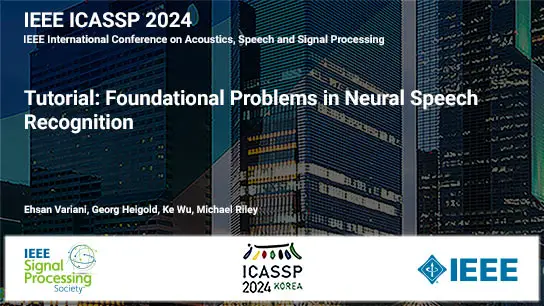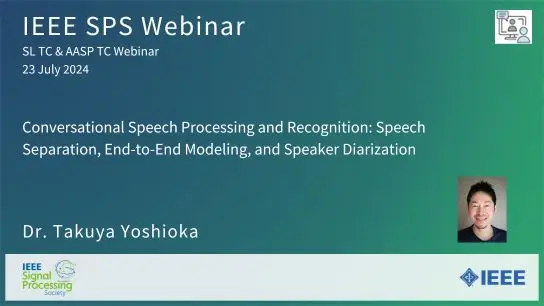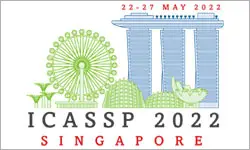TRANSCRIBE-TO-DIARIZE: NEURAL SPEAKER DIARIZATION FOR UNLIMITED NUMBER OF SPEAKERS USING END-TO-END SPEAKER-ATTRIBUTED ASR
Naoyuki Kanda, Xiong Xiao, Yashesh Gaur, Xiaofei Wang, Zhong Meng, Zhuo Chen, Takuya Yoshioka
-
Members: FreeSPS
IEEE Members: $11.00
Non-members: $15.00Length: 00:10:19
12 May 2022
This paper presents Transcribe-to-Diarize, a new approach for neural speaker diarization that uses an end-to-end (E2E) speaker-attributed automatic speech recognition (SA-ASR). The E2E SA-ASR is a joint model that was recently proposed for speaker counting, multi-talker speech recognition, and speaker identification from monaural audio that contains overlapping speech. Although the E2E SA-ASR model originally does not estimate any time-related information, we show that the start and end times of each word can be estimated with sufficient accuracy from the internal state of the E2E SA-ASR by adding a small number of learnable parameters. Similar to the target-speaker voice activity detection (TS-VAD)-based diarization method, the E2E SA-ASR model is applied to estimate speech activity of each speaker while it has the advantages of (i) handling unlimited number of speakers, (ii) leveraging linguistic information for speaker diarization, and (iii) simultaneously generating speaker-attributed transcriptions. Experimental results on the LibriCSS and AMI corpora show that the proposed method achieves significantly better diarization error rate than various existing speaker diarization methods when the number of speakers is unknown, and achieves a comparable performance to TS-VAD when the number of speakers is given in advance. The proposed method simultaneously generates speaker-attributed transcription with state-of-the-art accuracy.



